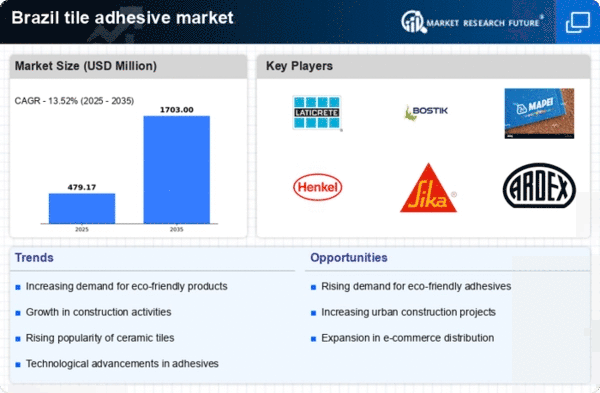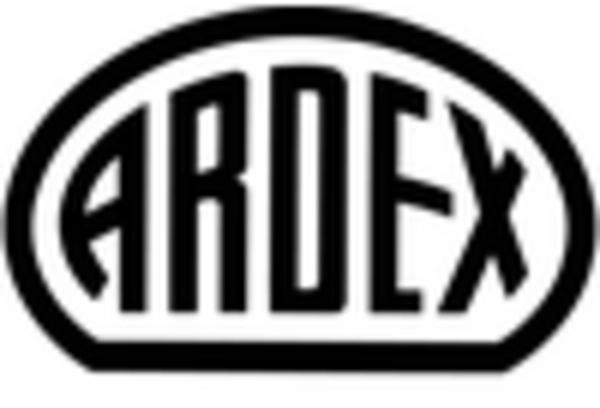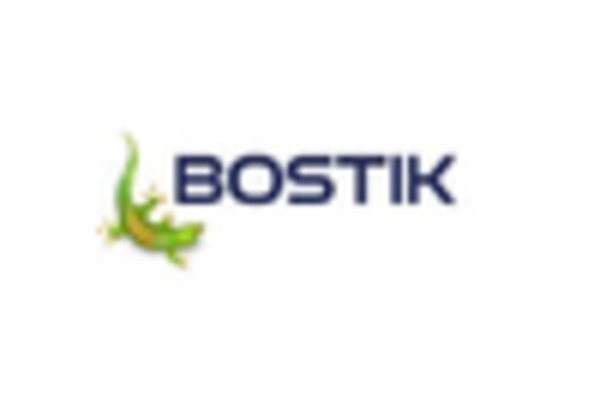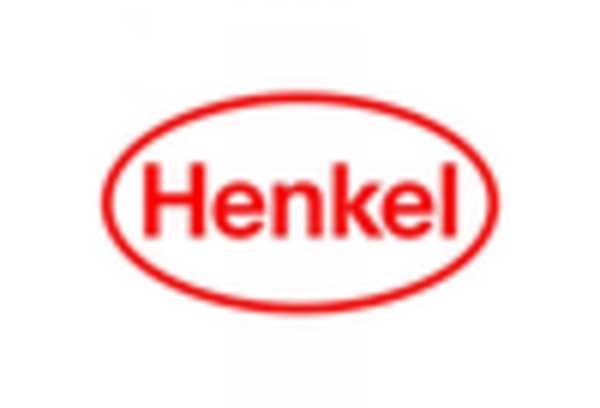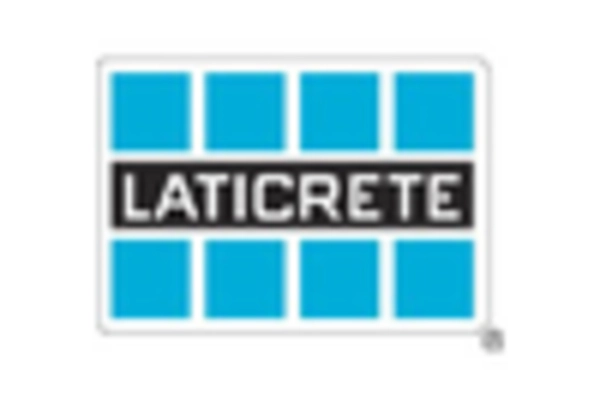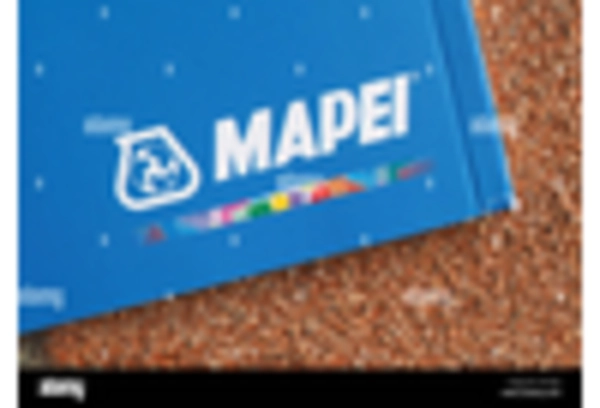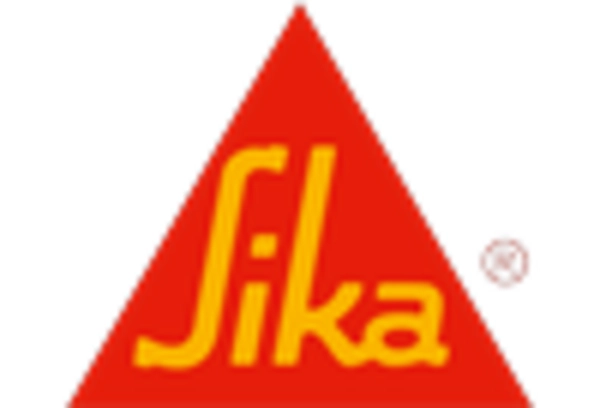The tile adhesive market in Brazil is characterized by a dynamic competitive landscape, driven by increasing construction activities and a growing demand for high-performance adhesives. Major players such as Laticrete International (US), Mapei S.p.A. (IT), and Henkel AG & Co. KGaA (DE) are strategically positioned to leverage innovation and regional expansion. Laticrete International (US) focuses on product innovation, particularly in eco-friendly formulations, while Mapei S.p.A. (IT) emphasizes its extensive distribution network and strong brand reputation. Henkel AG & Co. KGaA (DE) is enhancing its market presence through strategic partnerships and acquisitions, which collectively shape a competitive environment that is increasingly focused on sustainability and technological advancement.Key business tactics within this market include localizing manufacturing and optimizing supply chains to enhance efficiency and reduce costs. The competitive structure appears moderately fragmented, with several key players holding substantial market shares. This fragmentation allows for a diverse range of products and innovations, as companies strive to differentiate themselves in a crowded marketplace. The collective influence of these key players fosters a competitive atmosphere where innovation and customer-centric strategies are paramount.
In October Laticrete International (US) announced the launch of a new line of eco-friendly tile adhesives designed to meet the growing demand for sustainable construction materials. This strategic move not only aligns with global sustainability trends but also positions Laticrete as a leader in environmentally responsible products, potentially attracting a broader customer base concerned with ecological impacts.
In September Mapei S.p.A. (IT) expanded its manufacturing capabilities in Brazil by investing €10 million in a new facility aimed at increasing production capacity for its tile adhesives. This expansion is significant as it enhances Mapei's ability to meet local demand more effectively, reduces lead times, and strengthens its competitive edge in the region.
In August Henkel AG & Co. KGaA (DE) entered into a strategic partnership with a local construction firm to develop innovative adhesive solutions tailored for the Brazilian market. This collaboration is likely to enhance Henkel's product offerings and deepen its market penetration, reflecting a trend towards localized solutions that cater to specific regional needs.
As of November current competitive trends in the tile adhesive market include a pronounced shift towards digitalization, sustainability, and the integration of artificial intelligence in product development and customer engagement. Strategic alliances are increasingly shaping the landscape, enabling companies to pool resources and expertise. Looking ahead, competitive differentiation is expected to evolve from traditional price-based competition to a focus on innovation, technology, and supply chain reliability, underscoring the importance of adaptability in a rapidly changing market.


